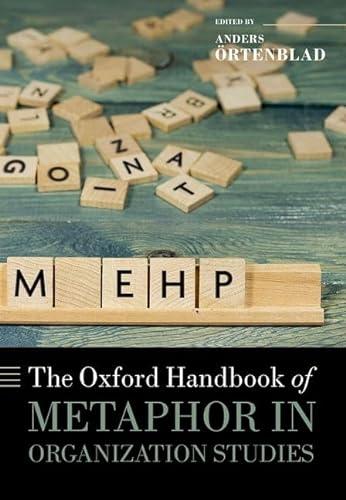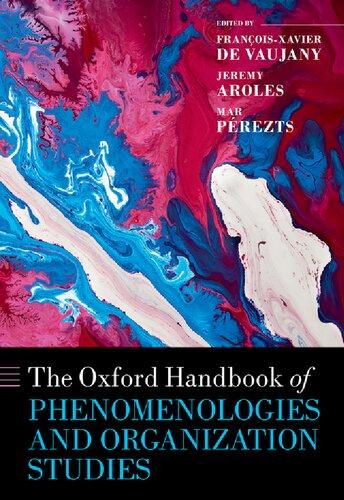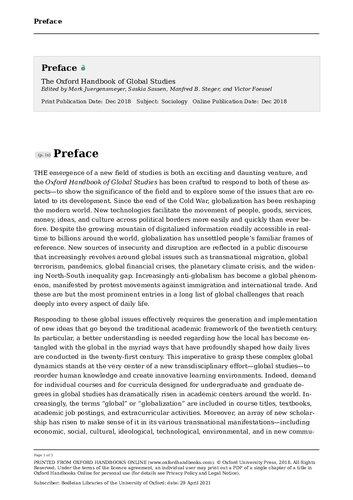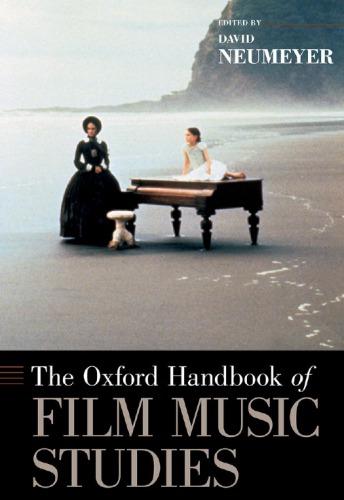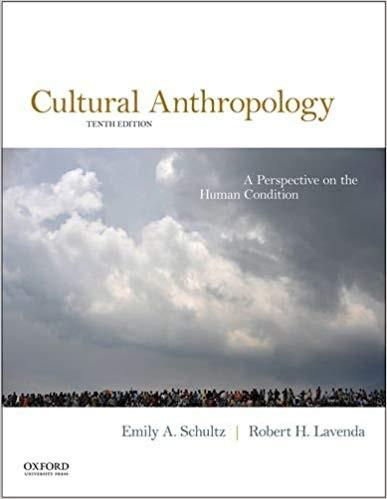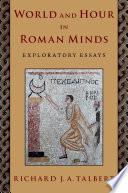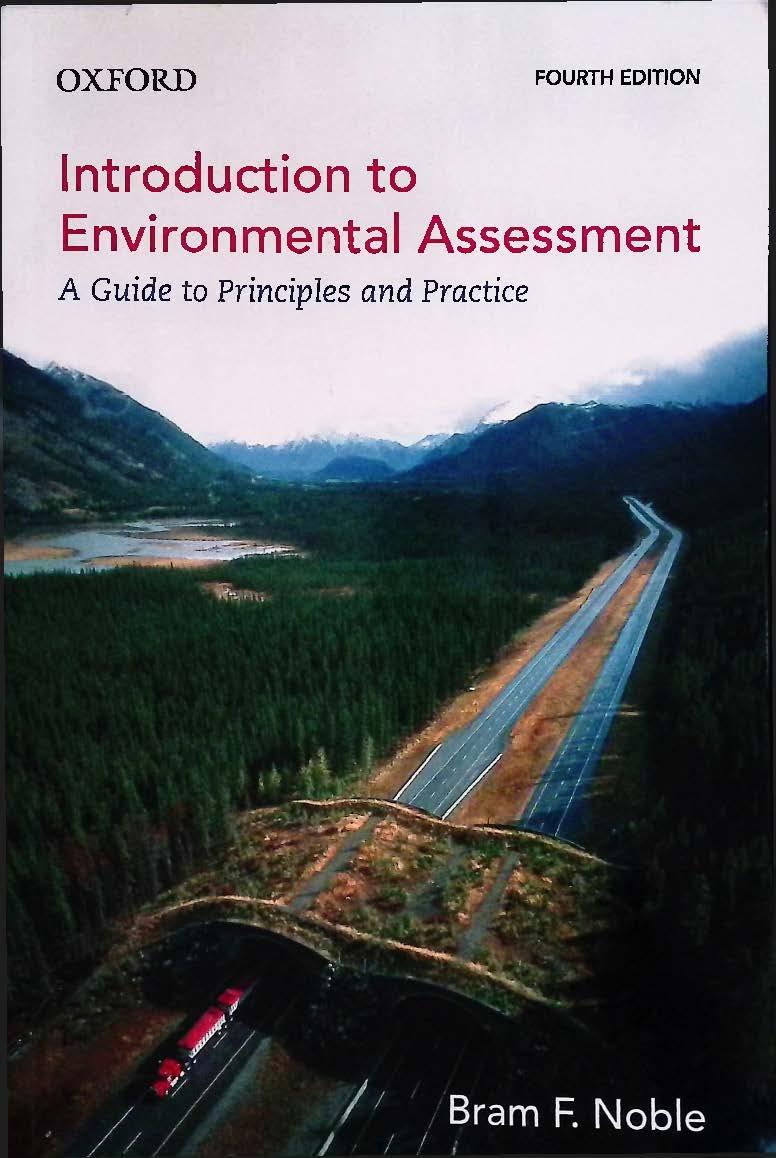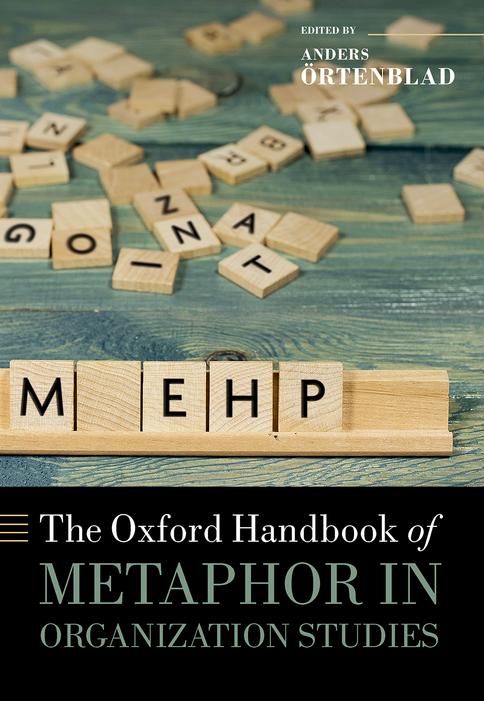the oxford handbook of METAPHOR IN ORGANIZATION STUDIES
Edited by ANDERS ÖRTENBLAD
Great Clarendon Street, Oxford, ox2 6dp, United Kingdom
Oxford University Press is a department of the University of Oxford. It furthers the University’s objective of excellence in research, scholarship, and education by publishing worldwide. Oxford is a registered trade mark of Oxford University Press in the UK and in certain other countries © Oxford University Press 2024
The moral rights of the authors have been asserted First Edition published in 2024
All rights reserved. No part of this publication may be reproduced, stored in a retrieval system, or transmitted, in any form or by any means, without the prior permission in writing of Oxford University Press, or as expressly permitted by law, by licence or under terms agreed with the appropriate reprographics rights organization. Enquiries concerning reproduction outside the scope of the above should be sent to the Rights Department, Oxford University Press, at the address above
You must not circulate this work in any other form and you must impose this same condition on any acquirer
Published in the United States of America by Oxford University Press 198 Madison Avenue, New York, NY 10016, United States of America
British Library Cataloguing in Publication Data Data available
Library of Congress Control Number: 2023941766
ISBN 978–0–19–289570–7
DOI: 10.1093/oxfordhb/9780192895707.001.0001
Printed and bound by CPI Group (UK) Ltd, Croydon, CR0 4YY
Links to third party websites are provided by Oxford in good faith and for information only. Oxford disclaims any responsibility for the materials contained in any third party website referenced in this work.
List of Figures ix
List of Tables xi
List of Contributors xiii Foreword xxiii
1. Toward an Increasingly Flourishing Use of Metaphor/s in Organization Studies 1 Anders Örtenblad
PART I METAPHORS: THEORETICAL CONSIDERATIONS
2. Defining the Role of Metaphor in Organization Studies 43 Joep Cornelissen
3. Defining, Refining, and Redefining Metaphor: A Reflective and Generative Discussion with Gareth Morgan 57 Cliff Oswick and David Grant
4. Dead and Alive, Sleeping and Waking Metaphors: The Spectrum of Metaphor and the Multimodality of Discourse 70 Cornelia Müller
5. The Meaning of a Word 85 Hans Christian Garmann Johnsen
PART II METAPHORS OF MANAGEMENT AND ORGANIZATION
6. Do Indigenous Metaphors Have Universal Applicability? Learnings from Māori in New Zealand 101 Kiri Dell, Chellie Spiller, and Nimbus Staniland
7. Metaphors for Diversity and Discrimination in and by Organizations 115
Regine Bendl and Angelika Schmidt
8. Images of the Life Metaphor in Organizational Studies 137
Rebecka Arman and Ewa Wikström
9. Metaphors of Digital Transformation 151
Bertrand Audrin and Eric Davoine
10. “Robots at Work”: A Metaphor or a Label? 166
Barbara Czarniawska
11. Metaphors for Competition within and between Organizations: The Value and Use of Sports Metaphors 178
Terri Byers and Charles Owusu
12. On Music- and Dance-Related Metaphors for Organization and Management 196
Paula Rossi
13. Fifty Shades of Organization: Darkness and Light as Metaphors for Processes 212
Stephen A. Linstead
14. On Color Metaphors in Organization Studies 230
Anders Örtenblad and Sumeyra Alpaslan-Danisman
PART III THE APPLICATION OF METAPHOR IN RESEARCH
15. Using Metaphors Critically and Reflexively in Empirical Organizational Research 251
Mats Alvesson, Yiannis Gabriel, and Jörgen Sandberg
16. Using Metaphors in Research: Visual Metaphors in Organizations 265
Hermann Mitterhofer and Silvia Jordan
17. Metaphor in Gesture in an Organizational Context 286
Alan Cienki
18. Ensuring Validity and Reliability in Empirical Studies on Metaphor in Organizations 300
Elena Bruni and Claudio Biscaro
19. Just Like a Freefall: The Freedoms and Pitfalls of Critical Metaphor Analysis 314
Lorin Basden Arnold
PART IV THE USE AND ABUSE OF METAPHORS IN SETTINGS OTHER THAN RESEARCH
20. Metaphors in the Creative Journey: Using Metaphors in Practice 331
Claudio Biscaro and Elena Bruni
21. Using Metaphors in the Management Classroom: Conceptualizing Complexity, Exploring Mindsets, and Driving Change 346
Cynthia Wagner Weick
22. Metaphors in Action: The Seductive Quality of Metaphors and Ways to Counterbalance It 361
Sonja Sackmann
PART V PERSPECTIVE ON METAPHOR
23. Translating Organizing and Organizational Metaphors: From the Universal to the Particular 375
Hugo Gaggiotti, Heather Marie Austin, Peter Case, Jonathan Gosling, and Mikael Holmgren Caicedo
24. Metaphors and Valence—Do They Have It? Do They Need It?
Jonathan Pinto and Hans Christian Garmann Johnsen
25. Jobs and the Mac: Conceptual Metaphors as Cognitive and Rhetorical Resource 405
L. David Ritchie
26. Metaphors and Organization Studies: A Critical Realist View 420
Michael Reed
27. Research: Invitation to Metaphor 434
Hugo Letiche and Ivo De Loo
PART VI EPILOGUE
28. Organizational Metaphors of the Future: Some Suggested Types of Further Research 451 Anders Örtenblad
29. Afterword: Analogy All the Way Down: Analogical Thinking Is at the Core of Understanding Organizations Interpretively 467 Haridimos Tsoukas
Index 475
4.1 The spectrum of verbal metaphor in metaphor theories: a categorical
4.3 From sleeping to waking: degrees of metaphoricity of transparent
4.4 Foregrounding and temporal dynamics of metaphoricity in multimodal discourse
16.1 Frontispiece of
16.2 John Heartfield’s “All fists clenched into one,” AIZ, Workers’ Illustrated Magazine
16.3 Left: an early organization chart—Daniel Craig McCallum’s organization chart for Erie Railroad in 1855; right: a template of a contemporary organization chart
16.6 Logo of the Transport and General Workers’ Union’s protest campaign by the artist
7.1 Metaphors for diversity and (anti)discrimination based on the literature search
9.1 Overview of the metaphors of digitalized organizations
11.1 Sports metaphors for competition in and between organizations
12.1 Music- and dance-related metaphors for understanding organizational life
18.1 Overview of how to ensure representativeness, reliability, and validity with metaphor in empirical data
20.1 Metaphor in the creative journey
22.1 The seductive quality of metaphors as a function of contextual factors
Contributors
Sumeyra Alpaslan-Danisman is an instructor in Continuous and Professional (Development) Studies at Baruch College and Queensborough Community College at City University of New York, USA. She holds two MAs in Management and Human Resource Management, and a PhD in Business Management. She worked as an Associate Professor at Mevlana University and researcher at Ohio State University and Stony Brook University. She has published mainly on management and research methods, and her research interests are intersections of human resource management and organizational behavior, expatriation, metaphors, and qualitative research methodology.
Mats Alvesson is Professor at School of Management, University of Bath and Lund University and affiliated with City University, London and Stockholm School of Economics. He has done extensive research and published widely in areas including qualitative and reflexive methodology, critical theory, organizational culture, knowledge work, identity in organizations, gender, organizational change, and leadership. His latest books include Reflexive Leadership: Organizing in an Imperfect World (2017, with Blom and Sveningsson) and Return to Meaning: A Social Science with Something to Say (2017, with Gabriel and Paulsen).
Rebecka Arman is Associate Professor at the School of Business Economics and Law, University of Gothenburg. She has conducted research into managerial work in healthcare, HR work and narratives during organizational downsizing, institutionalization and institutional work in medicine, as well as downsizing and being alone at work in the retail sector. Her most recent study was about retirement and HR narratives portraying aging employees as a problem or a solution. She teaches leadership and organizational theory and is interested in communication studies in organizations.
Lorin Basden Arnold is Provost and Vice President for Academic Affairs at Kutztown University. A graduate of Purdue University, her education had a split focus on organizational and interpersonal communication. She has taught across the communication studies curriculum, with primary attention to interpersonal, family, and organizational communication, as well as qualitative methodology. Her research has primarily addressed issues related to family, often with embedded critical and/or feminist analytic frames. Her most recent work has been devoted to mothering and how cultural expectations of motherhood frame and restrict the experiences of mothers.
Bertrand Audrin is Assistant Professor of Human Resource Management and Organizational Behavior at EHL Business School in Lausanne, Switzerland, and holds a PhD in Management from the University of Fribourg, Switzerland. His research focuses on the digital transformation of organizations and more specifically on the issues of change management and the storytelling and narratives that surround digital transformation phenomena. His research also investigates the implications of digital transformation for work practices and skills, and the transformation of human resource management practices.
Heather Marie Austin holds a Master of Arts in Applied Linguistics with a concentration in Foreign Language Pedagogy and has over a decade of experience in the TESOL field in the USA, Turkey, and Japan. In addition to teaching preparatory English, English for academic purposes, and English for specific purposes, she has been actively involved in materials development, curriculum design, CALL, committee work, and conducting research. Her professional and scholarly interests include discourse analysis, sociolinguistics, fluency development, materials and curriculum development, and educational technology.
Regine Bendl is Associate Professor at the Institute for Gender and Diversity in Organization at WU Vienna, for which she served as Professor and Chair from 2015 to 2020. Her research focuses on organizing and managing diversity, gender/feminist/queer perspectives, and subtexts of organization theories. Alongside numerous journal papers and book chapters, she has published 13 books as coeditor, including The Oxford Handbook of Diversity in Organizations and The Handbook of Research Methods on Diversity Management, Equality and Inclusion at Work). Besides her editorship of Equality, Diversity and Inclusion—An International Journal (2010–15), she has held several journal editorial positions.
Claudio Biscaro is Professor of Human Resource Management at Johannes Kepler University in Linz, Austria, and holds a PhD in Business from the University of Venice. Claudio studies creativity, innovation, and social change, and, through the lens of dialogic interactions, he explores the effect of metaphors, framing, and narratives. He not only works in management but is also active in environmental science. Thus, his work has been featured in management-related journals such as the Academy of Management Review and Organization Science, but also in environmental science journals such as Plos One, Natural Hazards, and Environmental Research Letters
Elena Bruni is Assistant Professor at LUISS Guido Carli University, Rome, and former Marie Curie Skłodowska at WU Vienna. She obtained her PhD in Management and Business from the University of Venice. Her research activity revolves around the investigation of the linguistic and rhetorical processes that stimulate institutional change. In particular, she focuses on the mechanisms in which metaphors and other figures of speech are used to ascribe legitimacy, and how different modes of communication (e.g., visual and written) may trigger or stifle collective action. Her work has been recently published in the Academy of Management Review.
Terri Byers is a Professor at the University of New Brunswick, Canada. Her work has focused on understanding sport organizations, with a specific interest in critical perspectives of organization control and increasing diversity and inclusion in sport through innovation and technology such as virtual reality. She is widely published in sport management journals and books, and on practitioner forums, is a consultant to sport organizations in England and Canada on issues of governance, and has received research funding from the UK and Canada.
Peter Case is Professor of Organization Studies at the University of the West of England and a member of the Bristol Leadership and Change Centre. He also holds a part-time chair in management at James Cook University, North Queensland, Australia. His scholarly interests in leadership studies and organization theory are complemented by extensive international experience of leading applied research projects in the areas of rural development and global healthcare. Peter has published widely in academic journals and his books include Worldly Leadership, Belief and Organizations, and Origins of Organizing.
Alan Cienki is Professor of English Linguistics at the Vrije Universiteit (VU) Amsterdam (Netherlands), where he directs a research group on Language Use and Cognition. He also founded the Multimodal Communication and Cognition Lab, known as PoliMod in Russian, at Moscow State Linguistic University. He is the author of Ten Lectures on Spoken Language and Gesture (Brill) and coeditor of the two-volume handbook Body–Language–Communication (De Gruyter) and Metaphor and Gesture (Benjamins). He is former Chair of the international association for Researching and Applying Metaphor (RaAM).
Joep Cornelissen is Professor of Management at Rotterdam School of Management, Erasmus University, and Chair in Strategy and Organisation (part-time) at the University of Liverpool. He is interested in metaphor and communication during processes of innovation and change. In addition, he also has an interest in questions of scientific reasoning and theory development in management and organization theory. His work has been published in the Academy of Management Review, Academy of Management Journal, Journal of Management Studies, Organization Science, and Organization Studies. Joep is also the founding Editor-in-Chief of Organization Theory, and serves on several editorial boards.
Barbara Czarniawska is Professor Emerita of Management Studies at Gothenburg Research Institute, School of Business, Economics and Law, at the University of Gothenburg, Sweden. She is a member of the Swedish Royal Academy of Sciences, the Swedish Royal Engineering Academy, the Royal Society of Art and Sciences in Gothenburg, Societas Scientiarum Finnica, and Fellow of the British Academy. Barbara takes a feminist and processual perspective on organizing, recently exploring such phenomena as the future of the welfare state, the robotization of work, and personnel management of spies. She is interested in techniques of fieldwork and in the application of narratology to social science studies.
Eric Davoine is Professor of HRM and Intercultural Management at the University of Fribourg in Switzerland, board member of the association of French-speaking HRM researchers (AGRH), codirector of university executive programs in the field of HRM and Philosophy for managers, and member of editorial and reviewer boards of several journals including Career Development International and Journal of Global Mobility. His research explores the impacts of globalization processes on careers and HR practices, and his results have been published in journals such as International Business Review, International Journal of Human Resources Management, and European Management Journal
Ivo De Loo holds a doctorate degree from the Open University of the Netherlands, Heerlen, and is Professor of Management Accounting and Control at Nyenrode Business University, Netherlands. He is mainly interested in how management accounting and control is shaped and changed in organizations. In addition, he has developed an interest in research methodology, about which he has published in several well-known accounting journals, such as Management Accounting Research, Critical Perspectives on Accounting, and the Accounting, Auditing & Accountability Journal. He is a member of the editorial board of the latter journal, as well as of Qualitative Research in Accounting and Management.
Kiri Dell is from the Māori tribal area of Ngāti Porou. She works with many Indigenous nations across the world to raise Indigenous voices. Her main research areas are related to Māori land development, working across multiple disciplines of entrepreneurship, law, engineering, and science to build land-based ventures. Based at the Management and International Business School, University of Auckland, she lectures in Māori economy, Māori entrepreneurship, and Māori land issues. She is Director of the postgraduate diploma in Māori Development and Director of Tuakana, Māori, and Pacific academic success.
Yiannis Gabriel is a social psychologist, currently Professor Emeritus at the University of Bath and Visiting Professor at Lund University. Yiannis has written on organizational storytelling and narratives, leadership and followership, management learning, and the culture and politics of contemporary consumption. He has used stories as a way of studying numerous social and organizational phenomena including leader–follower relations, group dynamics and fantasies, nostalgia, conspiracy theories, insults, and apologies. He maintains an active blog at www.yiannisgabriel.com, where he presents popularized versions of his research and also discusses his musical, political, and other interests.
Hugo Gaggiotti is Professor at the University of the West of England, Bristol, UK. The focus of Hugo’s writing is on the intersections between rhetoric, rituals, and nomadic management, and how organizations could contribute to the construction of vulnerability in particular contexts of displacement, transfiguration, and liminality, such as international borderlands, multinational assembly plants, and ephemeral project-based
work. Hugo’s work has appeared in a range of interdisciplinary journals and his books include Organizational Ethnography: An Experiential and Practical Guide (2022) and Origins of Organising (2019).
Jonathan Gosling is Emeritus Professor of Leadership at Exeter University. He is now an independent academic and consultant at Pelumbra.com with roles including, with the Forward Institute, promoting responsible leadership in government, NGOs, and business; and supporting the front-line leadership of HIV and malaria control programs in Africa. He represented UK universities at the Rio+20 UN Sustainability summit and contributes to the “greening” of management education—for example, as coauthor of the textbook Sustainable Business: A One Planet Approach and cofounder of One Planet Education Networks (OPEN). He worked for many years as a community mediator and is a keen sailor.
David Grant is Professor of Management and Senior Deputy Director of the Institute for Climate Risk and Response, UNSW Sydney, Australia. His research focuses on how language and other symbolic media influence the practice of leadership and organization-wide, group, and individual-level change. Much of this research has been funded by government (Australian Research Council) grants. He has published in a range of peer-reviewed journals as well as practitioner outlets, and has coedited several books including Metaphor and Organizations (1996, with Cliff Oswick) and the SAGE Handbook of Organizational Discourse (2004, with Cynthia Hardy, Cliff Oswick, and Linda Putnam).
Mikael Holmgren Caicedo is Associate Professor at Stockholm Business School, Stockholm University, Sweden. His research interests are in the organization of management accounting and control, internal auditing, and the poetics and rhetoric of organizational and accounting practices, specifically the structures and forms that are advocated by formal and informal standard-setting communities and the nexus between metaphor and story. His work has been published in journals including Critical Perspectives on Accounting, Culture and Organization, Financial Accountability & Management, and the Journal of Contemporary Accounting & Organisational Change
Hans Christian Garmann Johnsen is Professor at the Department of Working Life and Innovation at the School of Business and Law at the University of Agder. He holds an MBA from the Norwegian School of Economics and gained his PhD at the Copenhagen Business School. In addition to his position at the University of Agder, Garmann Johnsen has been Adjunct Professor at the Norwegian University of Science and Technology (NTNU), Senior Researcher at NORCE (previously Agderforskning), and visiting scholar at several universities including UC Berkeley and Cornell in the USA, and Kingston University in the UK.
Silvia Jordan is Professor of Management Accounting at the University of Innsbruck, Austria. She previously held positions at the London School of Economics and Political
Science and at the University of Innsbruck. Her research interests include organizing and learning in high-reliability contexts, the role of calculations and graphical representations in risk management, and organizing across spatial and organizational boundaries. Her work has been published in journals including Accounting, Organizations and Society, Human Relations, Management Accounting Research, European Accounting Review, Management Learning, and the Scandinavian Journal of Management, as well as in multi-contributor books.
Hugo Letiche received a drs. in Psychology from Leiden University and a PhD in Adult Learning from the Free University, Amsterdam. He is Research Professor LITEM l’Université Paris-Saclay and Visiting Research Professor Nyenrode Business University. He was Director of the practitioner PhD program at the Universiteit voor Humanistiek Utrecht. Recent books: Magic in Organizations, Turn to Film, and L’art du sens dans les organizations. His current research interests are in the ontology of the turn-to-affect and the ethnography of accountability. Among other journals, he has published in Revue Française de Gestion, Culture and Organization, Organization Studies, and AAAJ.
Stephen A. Linstead is Professor of Management Humanities, School of Business and Society, University of York, UK. He researches organization culture, change, and development, engaging with both social sciences (geography, psychology, social anthropology, and sociology) and arts and humanities (film-making, history, literature, music, performance, philosophy, photography, and visual art). Winner of the UKRI Best Research Film award (2018) for Black Snow, his most recent books are The Magic of Organization (2020, edited with Hugo Letiche and Jean-Luc Moriceau) and Viral Verses: Art in Exceptional Times (2020, edited with Nick Linstead and Bryan Ledgard).
Hermann Mitterhofer is Associate Professor at the Department of Education at the University of Innsbruck, Austria. His research interests include the methods of critical discourse analysis and visual cultural studies, and their application to widely debated societal concerns such as terrorism, war, and immigration. His work has been published in journals including Accounting, Organizations and Society, Management Accounting Research, the Scandinavian Journal of Management, Zeitschrift für Pädagogik, MedienPädagogik, Zeitschrift für Psychotraumatologie, Psychotherapiewissenschaft und Psychologische Medizin, and Journal für Psychologie as well as in multicontributor books.
Cornelia Müller is Professor of Language Use and Multimodal Communication at the European University Viadrina Frankfurt/Oder, Germany. Her publications include articles and book chapters on gestures and language and on multimodal metaphors. She launched the journal Gesture and the book series “Gesture Studies” (both with Adam Kendon) and is editor-in-chief of the handbook BodyLanguageCommunication (2013, 2014). She is the author of Metaphors, Dead and Alive, Sleeping and Waking: A Dynamic View (2008) and has coauthored Cinematic Metaphor: ExperienceAffectivityTemporality (2018, with H. Kappelhoff). She is currently working on a textbook: Gesture
and Language. Her research interests revolve around language as genuinely multimodal phenomenon.
Anders Örtenblad is Professor of Working Life Science at the University of Agder, Norway. He has edited books that have been published by Edward Elgar Publishing, Oxford University Press, Palgrave Macmillan, Routledge, and SAGE. Together with Linda L. Putnam and Kiran Trehan, he guest-edited a special issue of Human Relations, “Beyond Morgan’s Eight Metaphors: Adding to and Developing Organization Theory,” and coedited Exploring Morgan’s Metaphors: Theory, Research, and Practice in Organizational Studies (2017). He is the editing founder of the book series “Palgrave Debates in Business and Management”.
Cliff Oswick is Professor of Organization Theory at Bayes Business School (formerly Cass), City, University of London (where he previously served as Deputy Dean between 2011 and 2016). His research interests focus on the discursive study of organizing processes and nontraditional approaches to organizational change. He is an Associate Editor for both the Journal of Change Management and the Journal of Applied Behavioral Science, and former chair of the board of trustees for the Tavistock Institute of Human Relations (2014–20).
Charles Owusu holds a Master of Arts (MA) in Sport and Recreation Studies from the University of New Brunswick in Canada, funded by the New Brunswick Innovation Foundation, focusing on understanding the role of sport governance in human rights violations of female athletes. He holds a Bachelor’s degree LLB, Major in International Law from Zhejiang Gongshang University, China. Charles is pursuing a career in sports law after his graduate program and aims to improve the sport system in his home nation, Ghana.
Jonathan Pinto is Associate Professor of Organisational Behaviour and Negotiations at Imperial College Business School, where he has worked since obtaining his PhD from the University of Pittsburgh in 2008. His work spans both the dark side of organizational behavior (e.g., organizational corruption, workplace aggression) and its antidote (e.g., whistleblowing, paradox theory) and has been published in the Academy of Management Review, Group & Organization Management (GOM), Human Relations, the International Journal of Management Reviews (IJMR), the Organizational Psychology Review, and Physica A among others. He currently serves as Associate Editor of IJMR (since 2016), and of GOM (since January 2021).
Michael Reed is Professor in Organizational Analysis at Cardiff Business School, Cardiff University, Wales. His research interests focus on the complex power relationships between political elites and organizational elites within neoliberal regimes, with particular reference to the role and authority of “experts.” This research interest has been developed within a critical realist approach to the study of organizations. He is one of the founding editors of the journal Organization, and he is Fellow of the Academy of Social Sciences UK and the Learned Society of Wales.
L. David Ritchie received his PhD from Stanford University in 1987 and is currently a Professor of Communication at Portland State University. His primary research focus is metaphor use, storytelling, and humor in naturally-occurring discourse, with emphasis on communities and cultural institutions. He is the author of three books, including two books about metaphor theory, and over 40 refereed journal articles and book chapters on this and related topics. Recent publications include Metaphorical Stories in Discourse (2017), as well as articles in Metaphor and Symbol and Metaphor and the Social World
Paula Rossi is a Doctor of Administrative Sciences. She currently works as Assistant Professor at the University of Vaasa, Finland. Her research interest covers various themes, such as systems-thinking, systemic change, and experienced conflicts, all closely intertwined with understanding the complexity of everyday organizational life. Her research has been published in international journals such as Public Management Review and Knowledge Management Research & Practice. In the latter, her article addressed the metaphor of music as a sensemaking device in reimagining the concept of organizational conflicts.
Sonja Sackmann is Professor Emerita, University of Munich, Germany, and Guest Professor at the School of Economics and Business Administration, University of Tartu, Estonia. She held a chair in organizational behavior, was Director of the Institute Developing Viable Organizations, and taught at the University of St. Gallen, Switzerland; UCLA, USA; Jao-Tong, China; WU Vienna, Austria; EBS and Konstanz, Germany. Her research, teaching, and consulting focus on leadership; organizational culture; change; personal, team, and organizational development; and crosscultural management in national and multinational contexts. She received her PhD in Management from UCLA, USA, and her MS and BS in Psychology from the University of Heidelberg, Germany.
Jörgen Sandberg is Professor at the University of Queensland (UQ) Business School, Australia, Honorary Professor at Warwick Business School, UK, and Co-Lead of Practice and Process Studies, a multidisciplinary research hub within the UQ Business School. He has published extensively in the areas of competence and learning in organizations; practice, process, and sensemaking theory; theory development; philosophy of science; and research methodology. His most recent books include Reimagining the Research Process: Conventional and Alternative Metaphors (2021, with Alvesson) and Skillful Performance: Enacting Capabilities, Knowledge, Competence and Expertise in Organizations (2017, with Rouleau, Langley, and Tsoukas).
Angelika Schmidt is Associate Professor at the Institute for Change Management and Management Development at WU Vienna. Her main research interests are interfaces in organizations, communication and discourse in organizations, participation and collective action, and new forms of employment and their consequences for what happens in organizations. A current focus is the unveiling of the sharing
economy. She has published her work in the British Journal of Management, Journal of Managerial Psychology, Gender, Work & Organization, and Equality, Diversity and Inclusion
Chellie Spiller, of Māori descent, is Professor of Leadership the Waikato Management School. She has extensive business experience and brings this experience to her academic work and leadership development programs. Her research explores wayfinding and authentic leadership, governance, and economies of well-being. She is widely published and her books include Wayfinding Leadership: Groundbreaking Wisdom for Developing Leaders (2015); Reflections on Authentic Leadership: Concepts, Coalescences and Clashes (2015) and Practical Wisdom, Leadership and Culture: Indigenous, Asian and MiddleEastern Perspectives (2020). Chellie was a Fulbright Senior Scholar at the Harvard Kennedy School and University of Arizona.
Nimbus Staniland (Ngāti Awa, Ngāi Tūhoe) is Senior Lecturer in the Department of Management and International Business at the University of Auckland Business School, New Zealand. Her research focuses on the question of how Māori research methodologies can be applied to investigate the workplace experience and the organization of work in order to identify practices and processes that facilitate or hinder self-determination for Indigenous Peoples. In doing so, she is working to expand our understanding both of what constitutes research in Business Studies and of business, work, employment, and careers more widely.
Haridimos Tsoukas is the Columbia Ship Management Professor of Strategic Management at the University of Cyprus, Cyprus, and a Distinguished Research Environment Professor of Organizational Behaviour at Warwick Business School, University of Warwick, UK. He was the Editor-in-Chief of Organization Studies (20032008). He is the author of Philosophical Organization Theory (2019) and Complex Knowledge: Studies in Organizational Epistemology (2005), both published by Oxford University Press. He has co-edited several books, including The SAGE Handbook of Process Organization Studies (2017, with Ann Langley, SAGE). His research interests include organizational knowledge, organizational becoming, practical reason in management studies, philosophy, and organization studies.
Cynthia Wagner Weick is Professor Emeritus of Management at the University of the Pacific, California, where she held a joint appointment in the business and engineering schools. Weick’s expertise is in creative approaches to strategy, including metaphor, management of technology, and innovation. She has published over 30 refereed journal articles, book chapters, and books, including Out of Context: A Creative Approach to Strategic Management (2003), a collection of articles that use metaphor to enhance understanding of management. Weick earned her PhD at the Wharton School, University of Pennsylvania, and her MS and BS in Crop Physiology at the Ohio State University.
Ewa Wikström is Professor of Management at the School of Business Economics and Law, University of Gothenburg. She has published extensively on sustainable leadership, teams, communication, and collaboration across organizational and professional boundaries in complex environments. She has recently studied organizational capability for age management and prolonging work life from the perspective of knowledge retention, HR narratives, and managerial routines as well as international comparisons. She is a member of multidisciplinary research centers such as the Centre for Ageing and Health.
Foreword
This book about the power and potential of metaphor is timely. For much of the history of the field of organizational studies, we have operated under the assumption that research is a matter of producing objective and valid knowledge that is based on verifiable empirical data. This positivist orientation to organizational science seeks to build causal theories through the use of rigorous scientific methods. Data collection and analysis are seen as independent of values or normative expectations of the researcher, who is considered to be a detached observer in the tradition of the natural sciences. An awareness of the influence of our linguistic constructions, especially metaphors, reminds us that researchers’ values have consequences for how social science activity is conducted, what topics are chosen, what methodology is adopted, and how we conceptualize the consequences of such knowledge. The activity of organizational research is always already relationally embedded and implicated in the very world that the researcher seeks to study (see Barrett 2008). A book such as this that calls attention to the ways we construct the world through metaphor is a clarion call to appreciate the potential of social science to question what is taken to be normal and legitimate, in order to create a language that can facilitate new modes of thinking and action, and advance alternative social forms that challenge the status quo.
Metaphor is, at its simplest, a way of proceeding from the known to the less known. The qualities of one domain are transferred in an instantaneous flash of insight to some other domain that is by remoteness or complexity less known. The test of metaphor is not any rule of grammatical form, but rather the quality of semantic transformation that is brought about. This potential for semantic transformation is what makes artists, poets, leaders, and scientists alike so attuned to the power of metaphor, and aware of its potential for directing perception and enriching awareness. Good metaphors provoke new thoughts, excite with novel perspectives, vibrate with multivocal meanings, and enable people to see the world with fresh perceptions not possible in any other way.
Metaphors posit a framework for selecting, naming, and framing characteristics of one domain by asserting a similarity with a different domain, implying meanings that may not have been otherwise noticed. In this sense, metaphors are filters that suppress some details and emphasize others; in short, organize our view of the world. More than a displacement or shifting of words, metaphor is an interaction between systems of thought that produce a meaning larger than either of its subjects. Through the resonance of possible associations, a new contextual meaning is created.
We could say simply that metaphor is a way of re-describing the world. But it is much more than that. Metaphors name things into being. They can bring human affairs into a
new light, perhaps seeing the mundane in novel ways. Metaphors are so pervasive that they are guiding our ways of being, whether or not we notice their influence. Words create worlds. In calling attention to the influence of metaphor in how we construe organizing, this book makes a major contribution.
Often metaphor is more capable of capturing the continuous flow of experiences that cannot be conveyed in literal language. Imagine a child who cannot describe to his mother that his foot is asleep. He has no way of relaying the strange sensation. In frustration, he says to his mother, “There are stars hitting my foot.” The child associates a new, unfamiliar experience with one that he can grasp. He has a sparkling, glittering, tingling sensation that seems to be impacting his foot from outside his body. At the age of four he cannot say, “I’m experiencing numbness which is a result of inadequate flow of blood which I seem to have circumvented.” Indeed, even as adults we use metaphor to relate the experience: “My foot is asleep.” Several chapters in this book are a summons to consider ways that a proposed metaphor can enlighten the continual flow of human experience in organizational life.
Authors make an important distinction between “live” and “dead” metaphors. “Live” metaphors can be generative (Barrett and Cooperrider 1990) and ones in which a transformation is suggestive. A “dead” metaphor is one that is nontransparent and has become so familiar and habitual that we cease to be aware of it as a metaphorical construction; the concepts associated with the metaphor have become established and are treated as literal references. These submerged metaphors are candidates for reification (see Barrett and Sarbin 2007). The chapters in this book summon us to become more aware of the ways in which we have tacitly accepted some metaphors in such a way that we forget the “as if” construction that has taken on literal meaning.
One of the most potent effects of metaphors is that they can facilitate learning and insight. A live metaphor can provoke immersion in an experience, create an anomaly, provoke active thought experimentation, frame expansion. Thus for a young science student who is cognitively blocked in trying to grasp the structure of an atom, the metaphor “the atom is a solar system” could indeed be useful. The student may now begin to “see” neutrons and electrons revolving around a gravitation center. He or she might engage in such active thought experimentation long enough to allow a new understanding of the atom to emerge (see Srivastva and Barrett 1988; Barrett and Cooperrider 1990). Several chapters in this volume summon us to consider and experiment with novel metaphors that invite us to expand our awareness of nuances in organizational life.
Good metaphors, “live” metaphors, provoke new thoughts, excite us with novel perspectives, vibrate with multivocal meanings, and enable people to see the world with fresh perspectives not possible in other ways. This book offers several novel metaphors as candidates for novel perspectives. These chapters bid us to consider organizational life as dance, jazz, jam bands, tangos, glass cages, glass palaces, and so on. They consider the implications of organizational life through the lens of sustainability metaphors, metaphors of darkness, light, and shadiness. Several chapters invite us to notice how metaphors shape the creative journey, how they can be used to enrich shared understanding, how they can be used in classrooms to increase awareness of worldviews, and
also how they can be misleading and seductive. Taken as a whole, this book invites us to a critical and reflexive awareness that appreciates the complex flow of organizational life and suggests ways to enrich our understandings.
Since Morgan’s Images of Organization (1986) highlighted how metaphors guide theorizing, we have been waiting for a book like this one. This is the first volume to bring together the myriad ways that metaphors can enhance creative theory building. As metaphors unveil layers of meaning, this book will be important to researchers who can enrich their perspectival awareness, embrace complexity, appreciate context dependency, explore alternative nuances, and open new vistas of meaning. If it is true that we create the worlds that we later discover as real, this book is indispensable for helping us imagine new organizational worlds.
May 2022
Frank J. Barrett Professor of Management and Organizational Behavior
Graduate School of Defense Management Naval Postgraduate School Monterey, CA
References
Barrett, Frank J. 2008. “Value-Free Conception of Science.” In International Encyclopedia of Organization Studies, edited by Stewart R. Clegg and James R. Bailey, 1601–5. Portland, OR: SAGE.
Barrett, Frank J., and David L. Cooperrider. 1990. “Generative Metaphor Intervention: A New Approach for Working with Systems Divided by Conflict and Caught in Defensive Perception.” Journal of Applied Behavioral Science 26 (2): 219–39.
Barrett, Frank J., and Theodore R. Sarbin. 2007. “The Rhetoric of Terror: ‘War’ as Misplaced Metaphor.” In Information Strategy and Warfare, edited by John Arquilla and Douglas A. Borer, 16–33. New York: Routledge.
Morgan, Gareth. 1986. Images of Organization. London: SAGE.
Srivastva, Suresh, and Frank J. Barrett. 1988. “The Transforming Nature of Metaphors in Group Development: A Study in Group Theory.” Human Relations 41 (1): 31–64.

